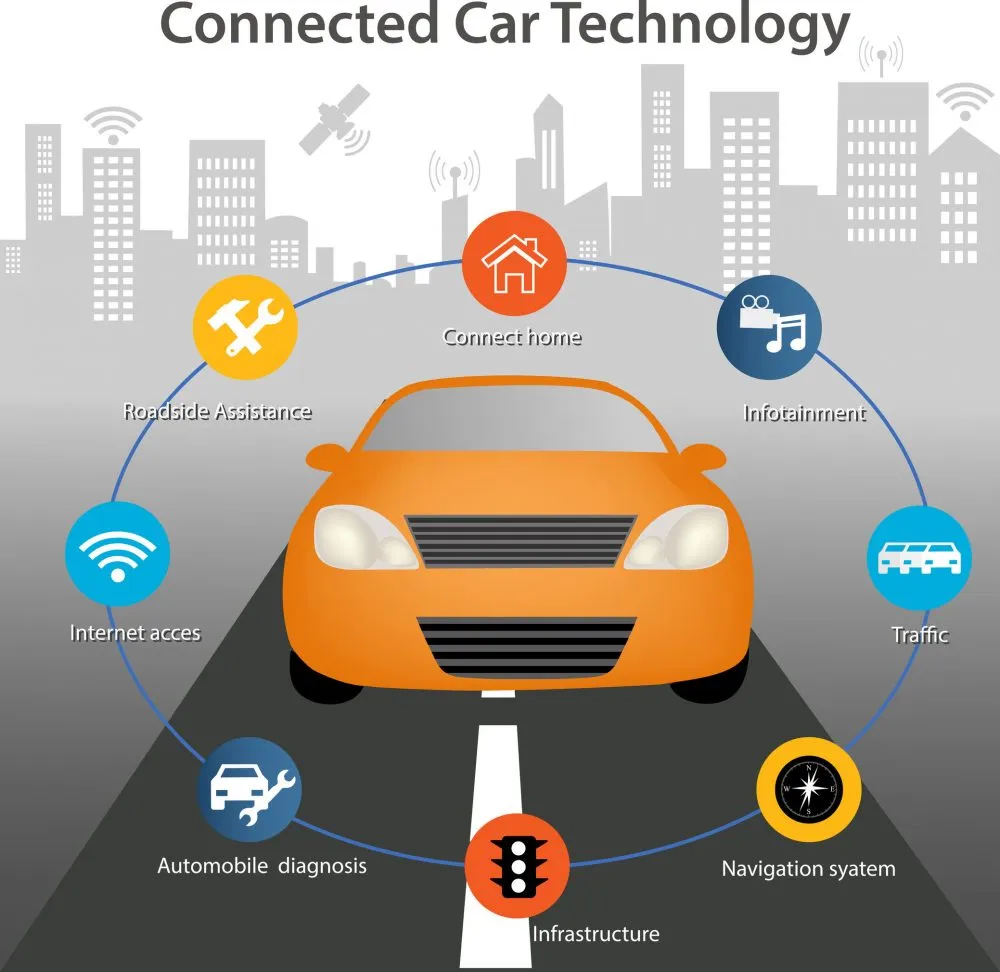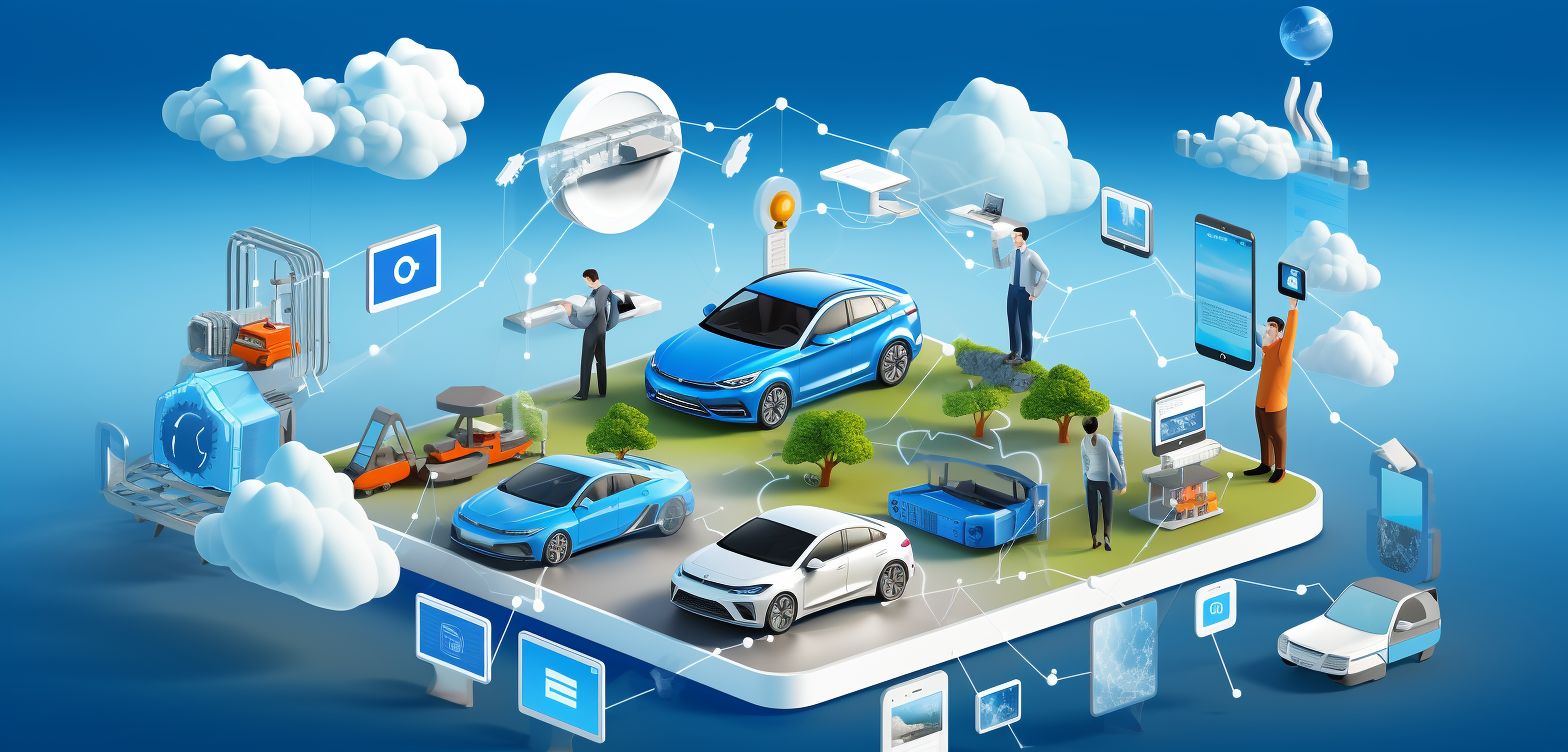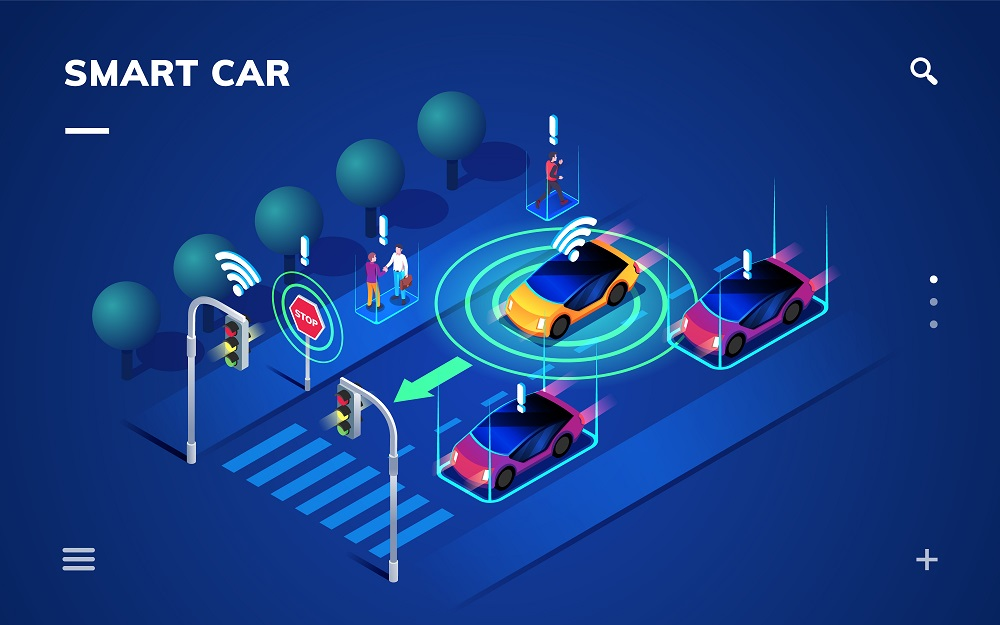
Are you ready to buckle up and dive into the fast-paced world of connected car technology? Imagine a future where your vehicle is not just a mode of transportation but a smart, interconnected marvel on wheels. In this blog post, we will explore the exciting challenges and opportunities that come with the evolution of connected cars. From futuristic advancements to safety concerns and everything in between, let’s rev up our engines and explore the incredible landscape of smart car innovations!
What is Connected Car Technology?

Connected car technology refers to the integration of internet-connected devices and sensors within vehicles, transforming them into smart, interconnected machines. These cutting-edge technologies allow cars to communicate with each other, infrastructure, and external systems in real-time. From GPS navigation and entertainment features to vehicle diagnostics and safety alerts, connected cars are revolutionizing the driving experience.
By leveraging wireless networks and data analytics, connected car technology enables seamless communication between vehicles for improved traffic management and enhanced safety on the roads. With the ability to gather and process vast amounts of data, these smart vehicles can optimize routes, predict maintenance needs, and even assist in emergency situations.
In essence, connected car technology is paving the way for a new era of intelligent transportation systems that prioritize efficiency, convenience, and most importantly – connectivity.
The Benefits and Advantages of Connected Car Technology
Connected car technology offers numerous benefits and advantages that have the potential to revolutionize the way we interact with vehicles. One key advantage is increased safety on the roads, as connected cars can communicate with each other to avoid accidents and traffic congestion. Additionally, these vehicles provide real-time updates on road conditions, helping drivers make informed decisions while on the go.
Another benefit of connected car technology is enhanced convenience for drivers. From remote vehicle monitoring to automated parking assistance, these features simplify the driving experience and save time for users. Moreover, connected cars offer improved fuel efficiency through optimized route planning and engine performance monitoring.
Furthermore, this Connected Car Technology enables seamless integration with other smart devices, allowing for a more interconnected lifestyle while on the road. With features like voice-activated controls and predictive maintenance alerts, connected cars enhance the overall driving experience for consumers.
Challenges Faced by the Implementation of Connected Car Technology
Connected car technology has undoubtedly brought a wave of innovation to the automotive industry, but with great advancements come significant challenges. One major hurdle is ensuring robust cybersecurity measures are in place to protect vehicles from potential cyber threats. As cars become more connected, they also become more vulnerable to hacking and data breaches.
Another challenge lies in standardization and interoperability issues among different car manufacturers and technology providers. Creating a seamless experience across various platforms can be complex and require extensive collaboration within the industry of connected car technology.
Moreover, privacy concerns surrounding the collection and sharing of personal data by connected vehicles raise ethical questions that need careful consideration. Balancing convenience with privacy protection is crucial for building trust among consumers.
Additionally, infrastructure limitations such as network coverage and bandwidth constraints may hinder the full potential of connected car technology. Ensuring adequate support systems are in place is essential for a smooth implementation process.
Opportunities for Growth and Innovation in the Connected Car Industry

As connected car technology continues to evolve, the opportunities for growth and innovation in the automotive industry are expanding at a rapid pace. With advancements in artificial intelligence, data analytics, and cloud computing, there is immense potential for enhancing the driving experience.
One of the key opportunities lies in developing personalized services and features tailored to individual drivers’ preferences. By leveraging real-time data collection and analysis, automakers can offer customized solutions that cater to the specific needs of each driver.
Additionally, connected cars open up new avenues for collaboration between different industries such as telecommunications, software development, and cybersecurity. This cross-sector partnership fosters innovation and drives continuous improvement in smart car advancements.
Furthermore, as autonomous vehicles become more prevalent on our roads, there is a growing demand for sophisticated infrastructure to support these technologies. This presents an opportunity for urban planners and policymakers to design smart cities that integrate seamlessly with connected vehicles.
Overall,…
Impact on Society and Future Possibilities

The impact of connected car technology in smart car advancements on society is profound and far-reaching. It has the potential to revolutionize transportation, making it safer, more efficient, and environmentally friendly. With features like real-time traffic updates and predictive maintenance alerts, connected vehicles can improve overall road safety and reduce accidents.
Future possibilities in the realm of smart car advancements are endless. Imagine a world where cars communicate with each other to prevent collisions or coordinate seamlessly for optimal traffic flow. This level of connectivity could transform urban planning, reduce congestion, and enhance the overall driving experience for commuters worldwide.
Moreover, as autonomous driving technology continues to evolve, we may see a shift towards shared mobility services that could drastically change car ownership models. This shift could lead to reduced emissions, less traffic congestion, and greater accessibility for individuals who cannot drive themselves.
The societal impact of connected cars presents exciting opportunities for innovation and positive change in how we perceive transportation in the future.
Safety Concerns and Solutions
Connected car technology brings about exciting opportunities for convenience and efficiency, but it also raises important safety concerns that cannot be overlooked. One major issue is the potential vulnerability to cyber attacks, as hackers could potentially gain access to a vehicle’s systems and compromise its safety features. This poses a serious risk to both drivers and passengers.
In addition, there are concerns about data privacy and security with the collection of vast amounts of personal information by connected vehicles. Unauthorized access to this data could lead to identity theft or other malicious activities. Ensuring robust encryption protocols and secure data storage is crucial in addressing these challenges.
To tackle these safety concerns, industry stakeholders must collaborate on developing stringent cybersecurity standards and regulations for connected cars. Regular software updates and patches should be implemented to address any vulnerabilities promptly. Moreover, educating consumers about safe practices when using connected car features can help mitigate risks associated with this technology revolution.
Prioritizing safety measures in the development of connected car technology is essential in building trust among consumers and ensuring a secure driving experience for all users.
Conclusion
Connected car technology is revolutionizing the automotive industry, offering a wide range of benefits and opportunities for growth and innovation. Despite facing challenges such as cybersecurity threats and safety concerns, the future of connected vehicles looks promising with advancements in smart car technology. As society continues to embrace this technological shift, we can expect to see even more exciting developments that will enhance our driving experience and shape the future of transportation.
Read more about connected car technology here. Visit QAWire to know more about automobiles news.


